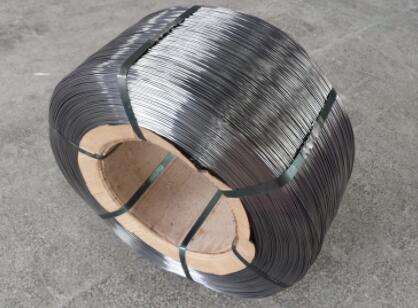The Importance of Gypsum Drywall Screws in Construction
In the world of construction and interior design, gypsum drywall has become a staple material due to its versatility, ease of installation, and fire-resistant properties. However, the effectiveness of drywall installations largely depends on the quality and type of screws used in the process. This article delves into gypsum drywall screws, their significance, types, and some important considerations when using them.
Understanding Gypsum Drywall Screws
Gypsum drywall screws are specialized fasteners designed specifically for attaching gypsum board (commonly known as drywall or gypsum drywall) to framing materials, including wood and metal studs. These screws feature coarse threads, which help to grip the drywall firmly and prevent it from sagging over time. Unlike regular screws, drywall screws are typically galvanized or coated to resist rust, as moisture can degrade the integrity of the fastener and the surrounding drywall.
Types of Gypsum Drywall Screws
There are two primary types of gypsum drywall screws coarse-thread and fine-thread screws.
1. Coarse-Thread Screws These screws are mainly used for attaching drywall to wood studs. The coarse threads allow for superior grip in softwood materials, making them the preferred choice for wood framing. The larger thread pitch means that they can be driven into wood more easily and hold the drywall tightly against the studs.
2. Fine-Thread Screws Fine-thread screws are intended for use with metal studs. They are designed with closer and smaller threads, allowing for a tighter fit when driving into harder materials like steel. Fine-thread screws can also help prevent stripping, which is a common issue when working with metal.
Key Considerations When Using Drywall Screws
gypsum drywall screws

When selecting gypsum drywall screws, several factors should be considered to ensure a successful installation
1. Length The length of the screws is crucial. Standard drywall thickness is 1/2 inch, so 1 1/4 inch screws are commonly used for securing drywall to wood studs. For thicker boards or special applications, longer screws may be necessary.
2. Type of Coating To enhance durability, drywall screws are often coated with a rust-resistant finish. Zinc coatings are typical, but for moist environments, consider screws with special coatings to minimize corrosion.
3. The Right Drill Using a drywall screw gun or a drill with a clutched setting can help prevent over-driving the screws. Over-driving can lead to damage in the drywall paper and weaken the attachment.
4. Spacing Proper spacing between screws is vital. The general guideline is to place screws no more than 16 inches apart along the studs to ensure the drywall is securely fastened and to meet building standards.
5. Avoiding Excess Drive Ensuring screws are driven just below the surface of the drywall is critical. If they are overdriven, they can create dimples in the drywall that may be difficult to cover with joint compound.
Conclusion
Gypsum drywall screws play a fundamental role in the reliable and efficient installation of drywall systems. By understanding the types of screws available, their appropriate applications, and how to use them effectively, builders and DIY enthusiasts can achieve better results in their drywall projects. With the correct screws, drywall not only remains intact but also contributes to the overall safety and aesthetic appeal of interior spaces. Therefore, investing in quality gypsum drywall screws and applying best practices during installation is essential for any successful construction project.

















